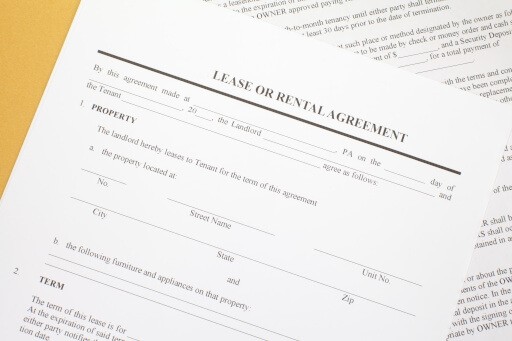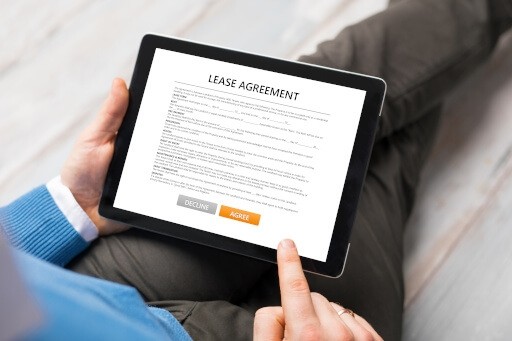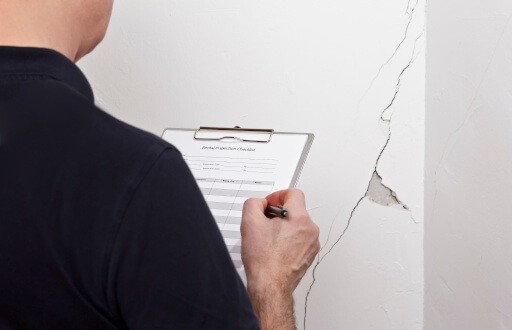A rent-to-own agreement may be the perfect solution for a landlord struggling to sell their home or a renter who cannot afford to buy. This contract gives prospective tenants a fighting chance in a competitive market while securing your home for purchase at the end of the contract. But you may wonder, “what are the pros and cons of rent-to-own?” Learning about the ups and downs of this unique arrangement can prepare you for a fruitful landlord-tenant relationship.
What is Rent-to-Own?
Rent-to-own is a unique contract allowing your tenant to rent and purchase your home before or at the end of the lease agreement. There are two types of rent-to-own contracts, including:
- Lease option agreement: The tenant can buy the home if they want but are not legally obligated to do so.
- Lease purchase agreement: The tenant is legally obligated to buy the home at the end of the contract and may incur legal and financial ramifications if they decide not to go through with the deal.
How it works can vary depending on the terms of the contract. In general, every rent-to-own agreement should include the following details:
-
Premium payment: Also called an option consideration or option fee, the premium payment is a non-refundable upfront cost locking in the property’s price and giving the tenant first dibs to buy it before or on an agreed date. Most option fees fall between 2.5 and seven percent of the purchase price.
-
Purchase price: This is the set price for the tenant to buy the property. It is a fixed cost, meaning it will not change. The purchase price is usually a bit higher than the current market value for homes in the area.
-
Term or time limit: Like most contracts, a rent-to-own agreement should define the official start and expiration date. Generally, this term will last about one to three years.
-
Rent credit: This represents how much of the tenant’s rent is allocated to the home’s final sale. For example, if your tenant pays 2000 dollars a month (in a two-year term) and 500 dollars is rent credit, then that is 12,000 dollars paid toward the home’s purchase price by the term end date.
-
Renewal policy: Also called a renewal stipulation, this clause defines if the buyer can extend the rental agreement and for how long.
-
Maintenance clause: From fixing lights to kitchen plumbing, the rent-to-own agreement should disclose who is responsible for the maintenance of the home. You could set a dollar limit, which says the tenant will pay for repairs under a certain amount and you will cover fixes above that amount. However, local and state laws govern this stipulation, so it can vary nationwide.
Pros of Rent-to-Own
1. Build equity
A critical element of owning a home is your ability to sell it for more than you owe on the mortgage; this process is building equity. Technically, your tenant cannot build equity while renting your property. Every rent payment they make contributes to the down payment of the home. Eventually, when the tenant becomes the homeowner, these contributions will have helped build up their home’s equity.
2. Save for a down payment
The more money a tenant contributes to the down payment, the lower their monthly mortgage payment and the less interest they accumulate over time. Rent-to-own can make it easier for a renter to achieve their down payment goals and afford a property that may have been unattainable. These contributions also offer greater assurance you will sell your house profitably.
3. Solidify a purchase price
Home prices can fluctuate in a normal housing market based on market trends and the property owner’s financial ambitions. With a rent-to-own agreement, the purchase price is locked in. There are two main reasons why this plan can work well for both parties:
- It guarantees you will eventually earn a set profit.
- The tenant doesn’t have to worry about getting outbid or losing out because of a sudden price hike.
4. No need to move
The rent-to-own agreement is an attractive opportunity for people who know where they want to live but can’t afford to buy in the area. This contract allows them to live in their desired location until they save enough to purchase the house. There is no need to move, so they can gain peace of mind, explore the neighborhood, and get a feel of their new city.
5. Favorable for tenants with lower credit scores
A person’s credit score determines the home loan they may qualify for. Some people have a low credit score, which often disqualifies them from affording their preferred home. As a seller, it’s standard to accept a lower credit score than most mortgage companies. Consider candidates with a credit score between 600 and 660 at a minimum.
6. Buying the home is not mandatory
Rent-to-own option contracts are beneficial because they’re flexible and allow tenants to terminate the agreement legally. Whether they lose interest in the home or decide to move somewhere else, your occupants do not have to purchase the property even after renting it for years.
Cons of Rent-to-Own
1. Potential to lose money
The point of a rent-to-own agreement is to help tenants put money toward the eventual home purchase. If they decide not to buy the property, your renter must go through the proper legal channels to dissolve the contract. This action can be incredibly costly and may cause them to lose money in the long run. The tenant will also lose the non-refundable option fee and any money that went toward the down payment.
2. Tenant is liable for the owner’s debt
Rent-to-own is a transition of property ownership, meaning the tenant also takes over the original owner’s debt. For example, if the previous homeowner didn’t pay their property taxes or mortgage, the tenant becomes responsible for those debts once they buy the home. This puts the tenant-turned-homeowner into a precarious situation where they must deal with a new financial and legal burden.
3. Agreement may become void
Like many contracts, you can void the rent-to-own agreement for several reasons. For example, if your tenant misses their rent payments or constantly pays late, you might decide to cancel the deal. This can be problematic because your property will be vacant, leaving you to pay for advertising all over again. The longer your home sits empty, the more money you lose.
4. Unexpected problems may arise
Even with the best intentions, unexpected issues can interfere with the rent-to-own process. For example, your tenant might lose their job and no longer afford the rent, or you might stumble and default on your mortgage. As these situations can jeopardize the fulfillment of a rent-to-own agreement, you must create strategies and contingency plans to deal with them should they arise. To help avoid obvious issues, screen your tenants thoroughly with Apartments.com. View eviction and criminal history, as well as credit reports, to avoid glaring red flags from the start.
5. More prone to scams
Be aware that some people wish to exploit the rent-to-own agreement for their own ulterior and selfish motives. Property owners and renters can fall prey to scams, particularly vulnerable tenants. As a landlord or property owner, avoid language in the contract that says purchasing the property is mandatory. Additionally, please do not ask for a tenant’s personal financial information immediately; provide them with a free contract they can run by their attorney or real estate agent.
6. Tenant may be responsible for repairs
While passing the responsibility of property repairs on to your renter may seem like a sound financial decision, it can do more harm than good. If repairs and maintenance are too costly, it may impact the tenant’s ability to make rent payments on time or at all. Some tenants may not have the budget for this liability, so when drafting the maintenance clause in the contract, think carefully about who is responsible for these costs.
Differences Between Rent-to-Own vs. Mortgage
The primary differences between a rent-to-own agreement and a mortgage are how they work and whom they benefit. A mortgage is when a bank or lender gives someone a loan to purchase a home they cannot buy outright with cash. This individual then makes mortgage payments on the property as the owner. Rent-to-own is when a tenant rents a home for a specific time, with the option to buy the property once the contract ends. It works for people who cannot afford the down payment or do not qualify for a home loan.
Tips about Rent-to-Own
Any legitimate rent-to-own contract should benefit you and your tenant. It is about carefully negotiating each other’s financial needs to ensure both parties are satisfied with the deal. Here are some tips for a successful rent-to-own agreement:
- Have a real estate lawyer or attorney review the rent-to-own agreement
- Allow the tenant to schedule a home inspection
- Disclose as much information about your home as possible
- Have your tenant meet with their lender to ensure everything is in order on their end
Frequently Asked Questions
Can rent-to-own affect a tenant’s credit?
Independently, rent-to-own will not affect a tenant’s credit report. Only if you or the tenant reports their monthly rent payments to a credit bureau will it impact them. Reporting your tenant’s positive rent record can help improve their credit score.
What is better? Rent-to-Own or mortgage?
It depends on an individual’s personal needs. A mortgage is suitable for someone who knows where they want to live, has the money for a down payment, and can qualify for a mortgage loan. Rent-to-own is better for people who:
- wish to try homeownership before buying
- don’t have enough savings for a down payment
- have a lower or poor credit score
- have a nontraditional source of income
- want to test out a city or neighborhood before moving there permanently
- are waiting for an affordable mortgage rate
Ultimately, you and your potential buyer should compare the pros and cons of rent-to-own homes to determine what is best for both of your needs.
Is it worth it to rent-to-own?
Yes, it can be worth it. It gives your tenant a chance at home ownership and provides you with extra money and a guaranteed homebuyer—still, factor in the rent-to-own pros and cons before making a final decision.
What is a rent-to-own alternative?
FHA loans may be the best alternative option for prospective buyers. These loans are easier to qualify for because of the looser financial and credit score requirements.











